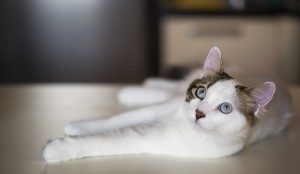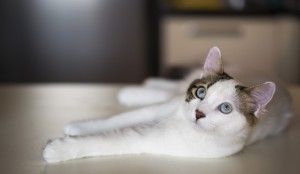Taking Care Of Your Cat: The Importance Of A Yearly Physical Exam

Vaccinations
Your cat, whether he is indoor or outdoor, needs to be vaccinated against potential health problems. Even indoor cats can escape and be exposed to disease, and vaccinations will help to keep him healthy and protected. Cats need to be vaccinated against feline leukemia, rabies, ringworm, feline calici virus and feline viral rhinotracheitis, as well as protected against heartworm and intestinal parasites. While indoor cats often require fewer vaccines than outdoor cats, only your veterinarian can determine what is best for your particular situation.
Spaying/neutering
Although this is a one-time event, all pets should be spayed/neutered unless you are planning to breed. While kittens are cute and cuddly and lovable, overpopulation is a real problem and it’s important to be responsible and make sure that you are not contributing to the issue.
Routine questions
Your vet will ask some routine questions at your appointment, including:
Behavior. Have you noticed any unusual changes in behavior since your last visit? Is your cat becoming aggressive, eliminating outside of his litter box or behaving listlessly? These could all be signs of an illness or disease.
Food. What type of food does your cat eat, how often is he fed, and have you made any recent changes to his diet?
Exercise. How much exercise does your cat get? Is he active or sedate in his temperament? Have you noticed any recent changes in his exercise patterns?
Physical condition. Any changes in skin, coat, eyes, ears, etc. should be reported to your vet as they can signal a potential health problem.
Dental health. Any potential oral issues can be discussed with your dentist, including foul odors (can signal an infection in the mouth or gut), missing teeth or decaying teeth, and pain.
Breathing. Is your cat coughing, sneezing, wheezing or otherwise exhibiting signs of distress when breathing?
Senior screening
Many vets are now recommending that older cats receive a “geriatric” or “senior” screening. Older animals are prone to many of the same infirmities that older adult humans are, including arthritis, eye and ear problems, diabetes and kidney issues and diseases such as cancer. Routine visits to your veterinarian can help to detect problems early.
In conclusion
Routine veterinary care is part of owning a pet, and it is important to make sure that your cat is healthy by making sure that he has his shots, is neutered and is well cared for. With proper care, cats can live well into their late teens, providing a loving companion for many years.









